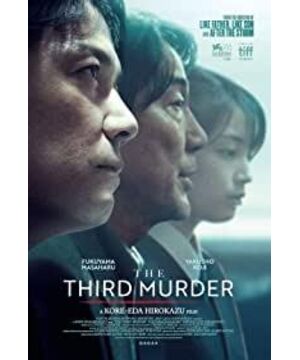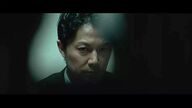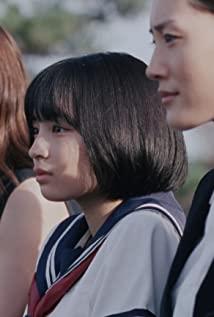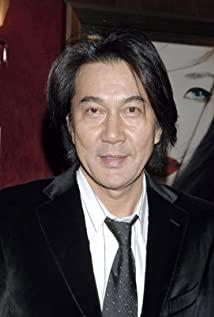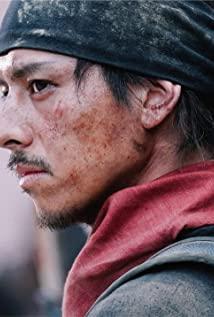Yakusho Koji’s performance in "The Third Degree Suspect" can be described as shocking, even though we already know his strength and status in the Japanese film and television industry. To say that he played well, this time is not simply praising him for his skill, but his grasp of the ambiguity of the character exuding clouds and mists. The suspect Misumi, played by him, was charged with one murder, and the second time he repeatedly overthrew himself in the face of a lawyer's prosperity and became the suspended truth. The director is Hirokazu Edema without revealing the truth in the script, and he did not tell it in the reference given to Hiroshi Yakusho to figure out the characters, so the Japanese Academy Award winner really performed Misumi in a single scene with an "unknown" attitude. The extremely subtle smiles in the middle, condensed the spirit of the whole person into every movement.
For example, when meeting in a prison, Shigemori (Fukuyama Masaharu) almost collapsed and asked him to tell the ultimate truth, while Misumi assumed that he had been tortured to the point where he almost lost his bottom line. He lowered his head, his eyes and body were shaking. , Pressed his lips tightly, then let go, until calm was restored. The ups and downs during the period seemed to have solidified his inner struggle, but from the perspective of the overall play, it seemed that this struggle was also part of the cover. This is what makes the audience shudder when Misumi hints at the end of the film about whether the facts he stated are "trustworthy". In this film, the audience and Yakusho Koji almost replaced Fukuyama Masaharu and Yakusho Koji, and became the two sides of the screen. The other party constantly changed their moves, true and false, until the end, they still maintained an ambiguous posture, you think he is another castle. Deep, don't you know that he actually has nothing in his chest.
This kind of dialectics between reality and reality can be experienced through concrete observation of behavior or perception of abstract overall atmosphere in the performances of Koji at Yakusho. This is also the most fascinating aspect of the only film by Hirokazu Edema so far that focuses on the reasoning of the case. In the past, it was a movie by Hirowa Kee, which focused on the family and the worldly life. The script wrote the mentality of different people in a precise but over-precise manner. This coexistence of pros and cons continues in "The Third Degree Suspects", and has become a complex point of contrast between the prosecution and defense and the suspects themselves in various backgrounds. Based on the superficially ambiguous insistence on Misumi's "whether to kill" from the beginning to the end of the film, Hiroshi Yakusho's performance is full of readable space, but because of this, the word-of-mouth of the film is greatly affected, whether it is a fan of Hiroka Kee or not. , It is more difficult to accept the dominance of the performance.
For Hiroshi Yakusho, his low-key style and performance style, which is almost consistent throughout his acting career, is also full of topics that cannot be explained. In previous works, most of the time, the appearance is plain but full of details. For example, the husband in "Paradise Lost", under the tone of the film's overall weakening of the strong emotional externalization, through the stagnation of eyes and subtle changes in the body To show the character's concealment of emotions and attempted concealment, and like Saito in "Yi Ming", it is also deep and low-key, hiding the deadly explosive power.
In the development sequence of Japanese actors, Hiroji Yakusho’s position is approximately equal to that of Chow Yun-fat in Hong Kong. They also have very successful experience in playing small people in the market. However, Hiroji Yakusho’s acting career began in stage plays and is different from Zhou. Chu has not experienced super-intensity TV drama performance tempering. In "Talking about Love and Dancing" directed by Zhou Fangzhengxing, the Japanese inherent straight back posture supplemented with flexible eyeballs to express the dilemma of the characters is the method of building the soul in detail by Yakusho Koji. In Harada’s "My Mother's Notes", he played the role of a writer (actually Inoue Yasushi himself), and he barely moved too much. He walked and carried his mother and passed the relationship between mother and child in an unassuming manner. Warm style. Even in light comedies such as "Woodpecker and Rain", Yakusho Koji still lowers the overall performance posture, and presents the lumberjack's daily life through the emotional contrast in the low pressure state.
Of course, as a Japanese Academy Award actor and a senior actor who has participated in many multinational productions, Yakusho Hiroji has rich experience and a low-key style. It is very reasonable to focus on the performance itself. Going back to "The Third Degree Suspect", this movie even arranged Masaharu Fukuyama and the glass wall in the same lens frame to gradually merge the terrible shadow of the heart into one in a reflective way, which is not only a test in this scene. The professional qualities of the two actors, and even the model of the cooperation of the opponents, the black hole-like calmness of Yakusho Koji, in addition to the need to complete the character shaping, seems to have partially taken on the role of accepting Fukuyama Masaharu's relatively light performance. This sense of performance is also quite convincing. In this sense, the line "container" of Shiongsheng in the film also seems to be a bit coincident with the performance of the two.
According to the original name, "Third Degree Suspect" should actually be "The Third Homicide", referring to Misumi's third time sentence of death to himself after the two murders. Whether this behavior really happened is never going to happen. Solve the suspense. By presenting the overall atmosphere of suspense and the ambiguity in the performance, it seems that people have found the "fuzzy performance" used in the rise of China's "fifth generation" directors, but the "fuzzy" in "The Third Degree Suspect" Obviously it is composed of a large number of perceivable details, perhaps the other side of the "fuzzy performance". Looking at contemporary Japanese actors, it seems that no one can grasp the accuracy of the performance so appropriately as Koji Yakusho. Perhaps Tadanobu Asano can, but movies like this are not often available.
View more about The Third Murder reviews


